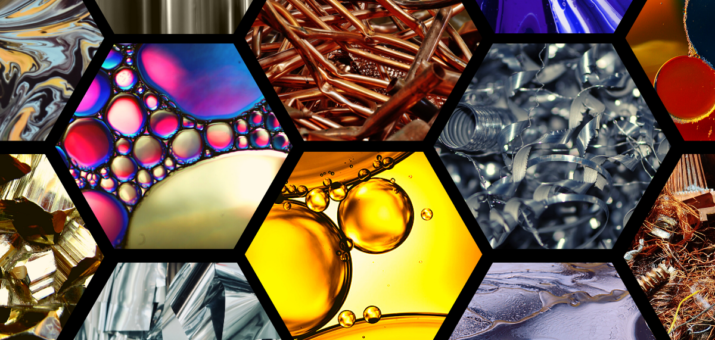
If commodity prices are a temperature check on the global economy, the price divergence of oil and metals is sending us mixed signals.
As Covid-19 struck in Q2 we saw a collapse of asset values in almost all sectors, but as central banks stepped in firmly to put a floor under the market, the rebound has been significant. Cheap and plentiful money, at super low rates, has created assets bubbles in bonds and tech. But what about the ‘fundamentals’ and what do commodities tell us about the future of the global economy.
If you look at the table below, you can see that industrial metals are up 22%, gold up 27% and oil down 26%.

Equities are telling a similar story – most mining companies are trading comfortably above their pre-covid highs whereas oil producers are in the doldrums.
The End of the Business Trip?

As we enter October, this will be the 7th consecutive month I have not taken the plane. Would I like to? The answer is certainly ‘yes’, but not if it involves being quarantined somewhere for 2 weeks! Business travel has been hammered by the pandemic and this includes commuting to the office.
I would not say that travel is dead, but I cannot see it returning to normality until at least 2022. By that time everyone will be an expert on Zoom and corporates will budget the costs savings from travel reduction for years to come. ‘Working from home’, is now the new norm and in future will be commonplace. All this spells weak oil demand long term.
And what has everyone been doing at home? Buying a new laptop, building a new office, fixing everything that has needed to be fixed for the past 10 years.

Build. Build. Build – for a Greener World

The best way to get yourself out of a recession? Live within your means? Pay down your debts? No, no and no. The best way out of a recession is to print more money and spend more. This has become the new mantra of governments around the world as fiscal restraint is thrown out the window. When the Fed and other central banks hit the panic button back in March there was no time for finesse. Bonds rallied and selective ‘Covid-proof’ stocks soared. Much of the rest of the market has been left behind.
However, as we move to ‘stimulus round two’, the key is to get that money to the ‘real’ economy, creating jobs and a better world for the long run. This will mean substantial government expenditure on public utilities. Just to add, that despite the whole calamity of Covid, one topic that has remained at the top headlines is climate change and the need to do something about it urgently.
Infrastructure spending has always been metals intensive. Combine that with a green revolution and the demand impact is huge. Both construction and mobility are metals intensive.
If you’re thinking about buying a new car, very likely you will be considering EV or Hybrid. That means aluminum, nickel, cobalt, lithium, zinc. Even if EV is transitionary and even if experts say the peak of oil demand will not come until 2030, a network of charging stations needs to be put in place in advance.
That means steel, zinc, and copper – lots of copper! If you are sticking with diesel and petrol, then it still means more aluminum as weight reduction equals emissions reduction and that’s not to mention the platinum, palladium and rhodium used in the catalyst.
Higher Prices equal more Supply?

This is certainly true in all markets, but elasticity of supply is variable. The increase in demand for oil (as we moved to 100m bbls per day) was met with an increased supply; the biggest of which was shale gas from the US. The technological breakthrough of fracking, combined with easy permitting, saw the US become the preeminent global oil producer. In 2019 we saw range bound prices as higher demand was met with lower cost supply. Additional pipeline capacity, combined with drilling cost improvements, helped to keep things in balance.
Metals on the other hand are notoriously hard to find and hard to extract. Add to this the environmental constraints and country risk and a supply side response to higher demand looks very tricky. A major copper reserve can take 10 years to reach full capacity. Global ore grades are still in decline. Chile (the largest producer in the world) needs to spend billions just to keep copper supply at current levels.
A New Grid for a New Generation

The biggest constraint to renewable power is distribution – after all the sun is always shining somewhere on the globe. The key is getting that electricity to where it is needed. Whether you believe in Edison or Tesla (AC vs DC) high-tension long-distance transmission (HTLD) is key getting electricity to where the customer is. Over the next 10 years we will see enormous investment in not only new production of renewable power, but also in the grid itself. There is talk of creating a global East to West grid over the North pole to balance power supply long term. Again, the intensive use of metals in large volumes will be required.
Whilst the 2020 divergence of oil and metals markets is maybe extreme, it is a sign of things to come as we transition our energy needs from oil to electricity.
Simon Collins | Co-Founder and CEO | TradeCloud
About Us
At TradeCloud, we know that the commodities industry needs a secure communications platform bringing trusted parties together to carry out business. We are enabling communications with cutting-edge technology that gives our customers improved Visibility, Efficiency, Compliance, Collaboration and Security compared to their traditional communications channels.
Built by people who truly understand the physical commodities business TradeCloud is a secure network of trusted parties enabled to find and execute the optimal Trade. Established in 2016, TradeCloud has more than 500 member companies across more than 60 countries.
TradeCloud Commodities Web using cloud computing, and blockchain technology connects post-trade services such as freight, finance, and risk management and is driving unparalleled digital change across the physical commodities industry.
Write us at info@tradecloud.sg to book a free demo.
Visit https://www.tradecloud.sg to know more.
